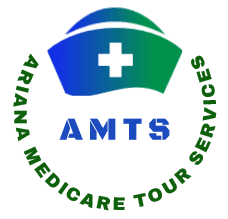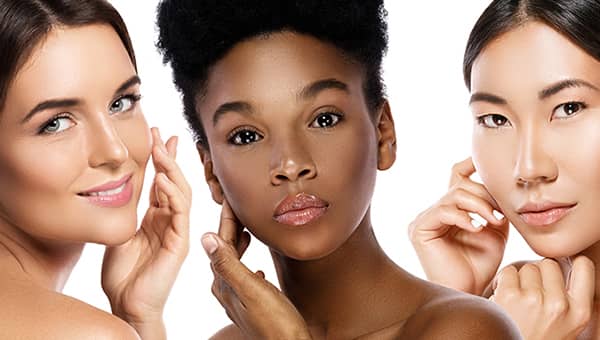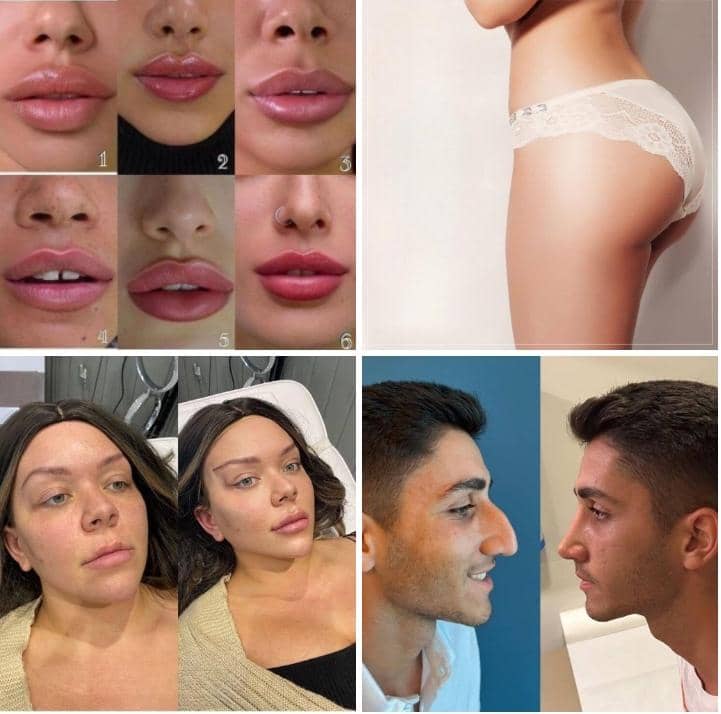
1.Is there a possibility to return to the initial state in rhinoplasty?
The possibility of returning to the original state of bony noses is very low, and in the case of repairing and removing the hump or deviation of the nose, there is no return to the original shape at all, and on this basis this problem can be considered an advantage of bony noses, of course this issue is more evident among fleshy noses
2. From what age can Rhinoplasty (Nose Job) be performed?
Comparatively, Rhinoplasty can be performed for women after the age of 17 and for men after the age of 18.
But sometimes there are exceptions that in people who are about 16 years old and who have severe deformity and deviation of the nose, it is possible to perform rhinoplasty and rhinoplasty at the same time, provided that rhinoplasty requires limited changes and does not require severe manipulation.
3. Can we sneeze after Rhinoplasty?
Yes, but the intensity of sneezing must be reduced by reducing the amount of air that is inhaled and exhaled, and to prevent a sudden return of pressure to the nose, it is preferable to sneeze with the mouth open and without blocking the nose inside it with the hands so that the pressure does not return to the nose.
4. How many days can we board the plane after Rhinoplasty?
It is better for the patient not to be in a situation where there is a difference in the weather and not to travel by air until four to five days after rhinoplasty.
5. How long after Rhinoplasty we can start exercising ?
According to my personal experience, I advise patients to start stretching exercises that increase blood flow to the muscles and tendons two weeks after rhinoplasty, and after three weeks they can start brisk walking or go to the swimming pool.
After a month, they can run on a treadmill. But it is better to do sports such as bodybuilding, which require weightlifting, after two and a half to three months. Also, aerobic exercise can be started one to one and a half months after rhinoplasty.
6.Can I wear eye glasses after Rhinoplasty?
It is best to avoid any kind of glasses until one month after rhinoplasty, but light glasses can be used from one month after the operation. Heavy glasses, such as sunglasses, should be used two and a half months after the operation.
It is also a device that helps the patient to use it immediately after the operation, and it is a kind of eyeglass holder on the forehead that prevents the weight of the glasses on the nose.
7. Is it acceptable to get pregnant a few months after Rhinoplasty?
My personal experience has shown that it is better not to get pregnant until the end of the sixth month after rhinoplasty, selectively and consciously.
Because during pregnancy, there is an imbalance in the hormonal balance and the retention of water and dissolved substances in the body interferes and to some extent causes the unpredictability of the outcome and the delay in wound healing. These problems can be controlled by diet.
8. What is the reason for the decreased sense of smell after rhinoplasty?
For a few days after rhinoplasty the sense of smell decreases due to the presence of spin in the nose, but all solutions remove it.
In some cases, when a patient has rhinitis or inflammation of the nasal mucosa before the rhinoplasty procedure, and even after the procedure, they may experience a decrease or change in their sense of smell due to reactive rhinitis.
But if the sense of smell is completely and permanently lost, the reason for this is the fracture of the diaphragm at the base of the skull and the loss of the alveolar bulb, which results from the incorrect rhinoplasty technique.
9. Will laughing or crying after rhinoplasty affect the outcome of the surgery?
It is recommended to avoid laughing or crying after rhinoplasty.
10. Is there a favorable outcome from the fleshy nose operation? Does the fleshy nose return to the same size and shape after surgery?
Usually, any changes in rhinoplasty are made to the bone and cartilage tissues. However, the thickness of the skin in a fleshy nose may not reflect the subtlety of the surgery and the changes made.
Keep in mind that the concern of people with chubby noses is understandable, but it should be noted that with fleshy nose surgery, positive changes will be made in obtaining a beautiful appearance.
11. Is it possible to have sex after nose surgery?
Often the doctor advises the patient that after 10 days he can resume intimacy with his wife, but even at this time, you must be careful not to subject your body to severe stress. Avoid being in any position that could cause an accidental blow to your nose. Even when having marital relations, at the discretion and permission of the best nose surgeon in Iran, place your body in a position where your face is in front of your sexual partner so that your sexual partner does not accidentally hit your nose. Resume your sexual relationship slowly, and if you feel that this relationship has increased the swelling of your nose, you should stop it or reduce the level of intensity.
12. How long can you wear makeup after nose surgery?
In rhinoplasty, there are incisions and sutures on the outside that are more sensitive and you must take care of these sutures. The use of unhygienic and inappropriate cosmetics may lead to infection of the skin in the area of the nasal suture. You should refrain from using cosmetics in the surgical area of the nose for two months until the skin is fully repaired and the sutured areas are completely healed.
13.Why has the area under the skin of the nose gradually become hollow after rhinoplasty, what is the reason and what should be done?
14. Can I use antibiotics instead of surgery for a sinus infection?
Chronic sinusitis is treated with both medical and surgical treatments. It is not effective against disease progression and drug resistance, especially antibiotics, in chronic sinusitis caused by fungal agents or aerobic microbes. Endoscopic sinus surgery made a fundamental change compared to the previous traditional surgeries, and also prevented recurrence of the disease.
15.Is it necessary to use a nose strip after surgery?
Although nasal tape is known as a warning to others, it is actually used for two purposes: to reduce swelling after surgery and to prevent damage to the nose. As you know, swelling after rhinoplasty is the most common complication after rhinoplasty, which varies according to the type of nose. One of the most important measures to reduce this swelling is nasal taping, which can be very effective in reducing swelling after surgery. In addition to reducing swelling, nasal tape after surgery can prevent possible injuries and injuries to the nose. Also, nasal tape speeds up the wound healing process and significantly reduces the possibility of wound tissue formation in the nose.
16. How many months should I use the nasal patch?
Nasal tape removal depends on the doctor’s opinion and the type of nose. The nasal tape is usually removed and repositioned one week after the nose surgery. Between one and three months after the operation, the adhesive tape should be on the nose, but during the post-operative examination, the doctor will teach you how to change the nasal tape yourself after that.
17. Are breathing problems through the nose normal after rhinoplasty?
After nose surgery, breathing will usually be difficult for a week or two due to swelling caused by the surgery, which is nothing to worry about and will resolve over time. If breathing problems are stable after rhinoplasty and have not resolved after months, you can go to the surgeon for examination.
18. What measures can be taken to reduce swelling after nose surgery?
Consuming natural juices such as pineapple juice, due to the presence of many nutrients and vitamins, can have a great effect in accelerating the healing process and, as a result, reducing postoperative swelling of the nose.
Limit the use of tobacco and alcohol as much as possible. Many of the ingredients in these compounds can increase the duration of nasal swelling by affecting the rate and speed of healing.
Using a cold compress on the nose and surrounding areas in the first 48 hours has a very significant effect in reducing swelling.
Limit sports activities and rest as much as possible.
When sleeping, put your head a little higher than usual.
You can do all of these procedures in the first week to help reduce nasal swelling faster after surgery.
19. Can the nose be cleaned with fins?
You may experience congestion and blockage of the nasal tubes due to residual waste products inside the nose, such as secretions, etc., in the first weeks after rhinoplasty. Many people try to empty their nose of this waste with finning, but you should know that finning is prohibited for the first four weeks after rhinoplasty. When the nasal plaster is removed, the nose can be cleaned. The best way to clean the nose is to wash the nose with a special serum. The nasal surgeon will give you the necessary recommendations and explanations for nasal lavage. So you don’t have to worry.
20. How can you sleep after nose surgery?
For 48 hours after nose surgery, patients are suggested to keep their heads above body level while sleeping. When going to sleep, lie with an open arch and use ice packs on the nose. In the first six weeks after nose surgery, you should not sleep on your stomach. It is usually recommended to sleep on your back for the first four weeks after rhinoplasty.
21. Is closed or open rhinoplasty better?
There is no better or worse in this situation. Because the use case of each of these methods is different from each other. For example, if your nose does not need many changes and also if you do not want incisions and stitches on your nose, then it can be said that you are a good candidate for closed rhinoplasty.
On the other hand, if your nose needs extensive changes, the nose surgeon will inevitably perform an open rhinoplasty. In open rhinoplasty, an incision is made at the base of the nose and then the nasal tissue is removed upwards. In this way, the surgeon’s maximum access to make the necessary changes will be determined.
22. Is laser nose surgery possible?
No, the laser will not play an effective role in rhinoplasty.
23. Does the fleshy nose return after the operation?
No, rhinoplasty is performed by Ariana surgeons with the latest technology, so that there is no going back after the operation.
24. How long does it take for the swelling of the nose to go away?
Swelling after rhinoplasty is very common. Of course, most of this swelling and inflammation will go away within the first four to six weeks. Swelling of the tip of the nose can last for several months. Rather, it was observed in cases that the new swelling completely disappeared after a year and a half. Of course, keep in mind that this swelling is different in open and closed rhinoplasty. In open rhinoplasty, an incision is made at the base of the nose, while in closed rhinoplasty, a partial incision is made inside the nostril. Therefore, closed rhinoplasty causes much less swelling.
25. Does a lot of bleeding occur after nose surgery? When does the bleeding stop?
Some patients experience some bleeding after rhinoplasty. Bleeding can occur from the front or back of the throat, making the patient feel nauseous. In some cases, antiemetic drugs are used. Bleeding usually subsides twenty-four hours after rhinoplasty. Usually, a special bandage is used under the nose and this bandage is changed every several hours. Nosebleeds should not be considered an unfortunate event or an abnormal complication. This occurrence can be beneficial; Because with the flow of blood in the nasal passage, waste products such as residual secretions or more solid parts are removed from the inside of the nose, and for this reason, the repair process of the nose is accelerated and the complete return of breathing quality is accelerated.
26. What is the cause of nose allergic rhinitis?
There is no specific cause for nose allergic rhinitis, because that’s when the immune system is sensitive and overreacts. The antibodies that attack the irritant, as well as the intensity of their reaction, are different and depend on the level of sensitivity of the body.
27. What factors increase the risk of nose allergic rhinitis?
There are factors that increase the risk of allergies and cause symptoms in the nose, the most important of which are:
Genetic factors: If a close family member, especially the mother, has allergic rhinitis or any other type of allergy, it increases the risk of developing allergies.
Gender and age: Allergies are more common in males before puberty, while it becomes more common in females after puberty.
Allergy history: The person suffers from other types of allergies or asthma.
Smoking: Smoking and exposure to cigarette smoke, especially in children under one year of age, cause allergic reactions.
Allergen exposure: Repeated and prolonged exposure to an allergen.
28. How do you choose your nose surgeon?
It is necessary to examine all aspects of rhinoplasty and check the reputation of the nose surgeon. You should also ask the opinion of patients who have undergone rhinoplasty with this surgeon. The nose surgeon must have a high level of experience in nose surgery. Viewing a sample from a nasal surgery can give the doctor a relatively complete view of the person. It is necessary for the patient to fully tell his wishes to the best rhinoplasty surgeon.
29. How can we determine our desires for nose surgery?
The initial dialogue with the nose surgeon is about what the patient wants from the outcome of the surgery. Many people want a natural nose in a way that matches other parts of the face. It is essential that the surgeon listens to the patient fully. In many cases, it happens that the result of rhinoplasty is good and that the nose does not suffer from any problems and the appearance of the nose improves, but the final result differs from the image that the patient had in mind. Viewing images from magazines and celebrities or computer simulations can provide a general picture of the patient’s desired outcome. Several techniques can simulate the end result of a nose job.
30. Conclusion:
Concluding our conversation will certainly be a warning that we will encounter in the field of rhinoplasty.
If for any reason you are interested in plastic surgery, especially rhinoplasty, be sure to get help from the best nose surgeon in Iran who has experience in this field and has an acceptable work record. An informed choice will lead to success in the outcome of the surgery and will certainly accompany your satisfaction.
Fortunately, many rhinoplasty doctors, due to their skills and knowledge, can eliminate most of our concerns about rhinoplasty complications and achieve the best results.


